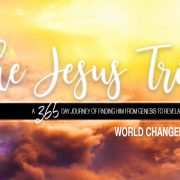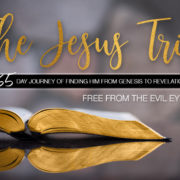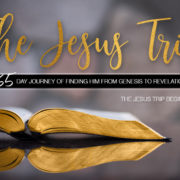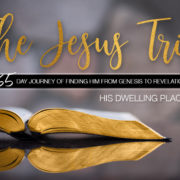#431 The Jesus Trip, Clash of Civilizations
#431 The Jesus Trip, Clash of Civilizations
By: Cheryl Thomas
(Sermon notes, Image & Group Discussion Questions at the bottom of the page)
Last week we were in the book of Acts and Zach talked about Pentecost
I love the book of Acts as it is the only document from the earliest Christian period to offer a narrative sequel to the account of Jesus. Apart from any other value Acts has history, as Luke develops the idea of the church as a historical entity with its own distinctive era.”[1]
The book was written around 80-85 CE
Luke records for us a narration of events that he deemed significant for understanding the early church movement.
He covers:
- The Ascension
- Pentecost – This is the strong finding Jesus moment for me… it is a fulfillment of Acts 1 promise of Power, which Zach talked about last week.
- Speeches to believers
- Evangelistic speeches
- Apologetic speeches to imperial leaders & philosophers
- Long speeches – I love that Luke recorded a time when Paul spoke til after midnight… that a young man falls into a deep sleep and fell out of a third story window was picked up dead, Paul goes puts his arms around him… “don’t be alarmed he is not dead” then goes back up continues to preach and broke bread…
- Missionary journeys — 3 missionary journeys and then his trip to Rome—trace many of the epistles and letters to location in the book of Acts
- Encounters with Demonic powers
- Salvation and baptism of the Ethiopian Eunuch,
- Peters vision and subsequent conversion of the gentile Cornelius and the gentile
Cornelius
- Peter having to explain himself
- Supernatural prison breaks
- Miracles
- The church beginning to organize itself- Acts chapter 6 – Deacons
- First Church Council in History- Acts chapter 15
- Glimpses into the impact of the Gospel in culture – Acts 19 – Converts in Ephesus burn their sorcery books (50,000 silver drachmas – a drachma was about a day’s wage; this amount was equivalent to one man’s wages for 137 years or 10 men’s wages for 14 years.)[2]
- Glimpse into personality conflicts- disputes and reconciliations- I am grateful for the honesty we find in scripture…One method of determining the truth of a narrative is something called the Criterion of Dissimilarity.
“This criterion can be illustrated by a legal case. If a witness’s testimony goes against a known vested interest of the witness, then it is given more merit as probably true.”[3]
Who writes an account that puts the characters in a negative light?
- One of the most impressive characteristic of Acts is, the complete unity and harmony of the apostles to resolve every problem through the direction of the Holy Spirit. This is the promise of Jesus in John 15-16 that the Holy Spirit would guide.
( its to your advantage, he will testify on my behalf, he will guide into all truth, he will take what is mine and declare it to you)
- Ultimately, we see the hand of God directing the course of Christian history from Jesus ascension to the life and ministry of the apostles left behind
But this week our reading has been in Corinthians.
Corinth
- “Corinth was a city-state (πόλις polis).
- Corinth was 40 miles west of Athens
- It’s was a wealthy seaport city whose economy was based on trade and commercialized pleasure for the wealthy
- Ancient Corinth 400 BC was one of the largest and most important cities of Greece, with a population of 90,000.
- After the Romans built a new city in its place 44 BC it was made the provincial capital of Greece, the city population was between 100,000 to 700,000 according to different sources.” [4]
- Like other cities, Corinth was a place of religious variety, with the worship of traditional gods and goddesses from Greek and Roman religions, local deities and heroes, and divinities from further east, such as the Egyptian deities Isis and Serapis.
- Roman cults were especially important to the city’s elite, and theimperial cult—in which the Emperor, his ancestors, and his family were venerated—formed an important part of religious and political life.
- Corinth 40 miles west of Athens
- City had developed an unapologetic love of things and love of pleasure (materialism and hedonism) acquiring something of a proverbial reputation for sexual promiscuity
- Probably best remembered today for its image problem and checkered history
Paul’s Relationship to the Corinthians Christians is a complex one.
His first encounter with the Corinthians came as he first brought the gospel to them. He arrived in Corinth on the heels of a difficult stay in Thessalonica and a poor reception in Athens. He spent about a year and half in Corinth, establishing the church there, 50-51 CE (See Acts 15:36, 18:32) When he felt like this work of establishing the church was done, Paul left the city and continued his missionary journey.
It was about a year and half later that Paul wrote a letter to the Corinthians. We don’t have this letter, but we know it exists because Paul mentions it in 1 Cor. 5:9, “I have written to you in my letter…” He wrote in response to news that the church was struggling spiritually.
The Corinthians responded with a letter of their own, asking for clarification on certain matters of life and theology. Those questions revealed some deep confusion that resulted in some serious problems with how they lived their lives.
This compelled Paul to write another letter, which is 1 Corinthians. He hoped to actually go back to Corinth and encourage them face-to-face. However, his plans changed, and he wasn’t able to go.
So, he sent young Timothy, who reported the situation in Corinth bad. They hadn’t done anything Paul told them to do his letter and the church was disintegrating.
Paul immediately put aside everything else and made an urgent visit to Corinth to try to put things right. But this direct confrontation with the Corinthians turned out to be a bitter and humiliating experience for Paul. This was a “painful visit” that caused him much sorrow (2 Cor 2:1).
The church had not only rejected Paul’s instructions but had chosen to follow other men who opposed Paul and treated him with disrespect and ridiculed his apostleship. Paul didn’t stay long in Corinth.
And even this was used by his opponents as evidence of Paul’s indecisiveness and lack of love for the Corinthians. But the truth was that Paul did care for the Corinthians, and he couldn’t leave things as they were, fearing his enemies would destroy the work of the gospel among the church.
Therefore, Paul wrote a third letter to the Corinthians. Again, we don’t have this letter, but we know from his fourth letter that this third one was a severe and tearful letter (2 Cor 2:4, 9).
While Titus took this letter to Corinth, Paul remained in Ephesus, where he faced some of the worst opposition to the gospel he had yet encountered.
Eventually, Paul and Titus reunited, and the apostle received news of Corinth. The good news was that many had repented of their treatment of the Paul and the gospel message.
However, a group of false apostles who undermined Paul’s authentic apostleship and made it difficult for Paul to minister to the Corinthians. It’s into this context that Paul writes his fourth letter to the Corinthians, our 2 Corinthians.
Now I have to admit that reading Corinthians as a new young convert and bible enthusiast was a bit tricky, and as such I would try to A apply its dictates to all persons at all times and miss the pieces that have limited application.
I especially liked when Paul says stay single…fit with my heart “I will be single and go to the mission field.”
But as you can see, I did not remain single…
Funny thing did a spiritual gifts test at bible school only to discover I had the gift of singleness… when back and reported to Karl and he said, “TOO LATE.”
Paul’s Letters
Paul was a prolific and lengthy writer. The average ancient letter was 87 words long, the literary letters of the Roman authors Cicero and Seneca averaged 295 and 995 words respectively.
The average letter of Paul, however, was 2,495 words long! Often covering a variety of subjects and addressing each with complex argumentation.[5]
We know that 1 Corinthians is one of the most quoted of his Epistles and in fact of the Bible, particularly the passage on Love. The book is rich in content, as it refers to the message of the Cross and Christ Crucified (1:18-23); Communion, the Memorial of the Last Supper (Chapters 10 and 11); the charismatic gifts of the Holy Spirit (Chapter 12); on love (Chapter 13); and on the Resurrection of Christ and of the Body (Chapter 15).
Unlike the book of Ephesians which was intended to be circulated to the churches, this letter was addressed to a specific church. Its particularity is one of its strengths but can be a challenge for interpretation. (as I alluded to earlier)
The letters to the Corinthian church are what is known as an occasional letter…
Occasional does not mean that they were infrequent or sporadic, rather, in most cases they were written on specific “occasions,” perhaps to combat a particular error (as in Galatians), or to ask someone for something specific (as in Philemon), or to respond to a church’s questions (as in large parts of 1 Corinthians). [6]
The Corinthian Problem
So, what is it about this Corinthian church that was so problematic?
The Church was a mixed congregation of converted Jews and Gentiles in the cosmopolitan Roman capital of the province of Achaia (Greece).
In short, the Corinthian church was crisscrossed by significant differences.
- It was composed of people who were from an utterly pagan background, who were half-Jewish pagans (that is, converted God worshipers), and who were Jews.
- There were many poor converts but also a number of high-status and wealthy figures, along with their households.
- And as always, there were complicated gender dynamics surrounding sexual activity.
They were married unmarried, men, women, widows and children, old, young, rich, poor, slave, free, educated, uneducated, Jew, gentile, pagan, god fearers, and idol worshippers.
They were synagogue leaders, civil leaders, and those who worked with their hands. It was not a homogenous gathering of people by any stretch of the imagination.
Further this Corinthian Christian community contravened the socially normative boundaries, and as a result they brought into their community all the hostility, suspicion, and misunderstanding that arose from these differences in race, class, and gender.
The church at Corinth was a hot mess, problems which included:
- Factions and Partisanship (1:10–4:21; 16:10–18) -type of partysyndrome, the party fixation among God’s people…“I follow Paul, I follow Apollos, I follow Peter, I follow Christ.” Tribalism is not a new phenomenon… It is the work of the devil… it is the scourge of our culture, it the scourge of Christianity.
- Incest (5:1–13)- Man had sex with his stepmother
- Prostitution (6:12–21) People having sex with the temple prostitutes
- Questions of Marriage especially due to their eager expectation of the return of Christ
- Should marriages be celibate (7:1–7)
- Christians married to one another asking about divorce (7:8–11, 39)
- Christians married to pagans asking about divorce (7:12–16)
- Confusion surrounding marriage and remarriage (7:25–40)
- Lawsuits (6:1–11)
- Idolatry (8:1–11:1)
- Role of women who pray & prophesy/to veil or not to veil (11:2–16);
- Chaos in worship, with speaking in tongues and competing voices (chapter 14)
- Inequality in the communal meal (11:17–34)
- The belief that because of the profundity of spiritual gifts they had arrived. TO which Paul responds, “already you have it all you want, already you have become rich! You have become kings—and that without me.” (1 Cor 4:8)
- Elitism- Practices around food & drink- liberty is not licence (8)
- Denial of the bodily resurrection of Jesus & Christians (15:1–58) -gives proof and says “if Christ be not raised our preaching is useless and so is your faith…your faith is futile”
- The collection of a large sum of money for Jerusalem (16:1–4)
- False Apostles & Deception 2 Cor 9-11
- Need to defend his Apostleship- Criticized his speaking ability. “letters are weighty and strong… but his speech is contemptible” (2 Cor 10:10) — How would feel?
Read 2 Cor 11:1, 22-29—
- Need to defend his undying love for his family… “I face daily the pressure of my concern for the church.” (2Cor. 11:28) “Now I am ready to visit you a third time, and I will not be a burden to you…So I will gladly spend for you everything I have and myself as well. If I love you more will you love me less.” (2Cor.12:14-15)
Each of these problems would have been bad enough in and of themselves, but when they were all present together, the combination was toxic.
Paul wrote to the Corinthians who were a community in the middle of a culture war, to borrow a phrase from Samuel Huntington, it was a “Clash of Civilizations. and the usurpation of false apostles.
A community immersed into the gospel through signs and wonders and lacking no spiritual gift except perhaps an understanding of the unity of the spirit and the agape of God.
The problems could be easily summed as a lack of understanding around relatedness…“a fitting relatedness.”
Fitting- what is proper, appropriate, correct
Relatedness- Is kinship, affiliation, connection, likeness
What is proper, and correct for those who are in a kinship, connection and share in likeness?
It was a failure to understand that in Christ all those partition walls that divide have been broken down.
Due to it extreme diversity the principle of appropriate relating wasn’t strong enough to overcome the conflicts in the Corinthian community.
However, Paul skillfully inserts two beautiful literary vices: the metaphor of the church being a body in Chapter 12 and the Love poem in Chapter 13. Both illustrate the right way of relating, recognizing our necessity for connectedness and the necessity to love one another.
Chapter 12 uses the image of the body of Christ to lay out the way the community should relate together. No part of the Christian body is unimportant. Every part is linked to every other part, no matter how humble it might seem to be.
Ephesians 4: 16 “From Him the whole body [the church, in all its various parts], joined and knitted firmly together by what every joint supplies, when each part is working properly, causes the body to grow and mature, building itself up [a]in [unselfish] love.” AMP
Peter said, “As you come to him, the living Stone—rejected by men but chosen by God and precious to him— you also, like living stones, are being built into a spiritual house to be a holy priesthood, offering spiritual sacrifices acceptable to God through Jesus Christ. (1 Peter 2:7)
Ever since creation everything that lives exist in an elaborate network of relationships;
Plants for example:
w Rooted in soil
w Reach for sunlight
w Require insects for pollination
w Spread seeds by means of the wind.
- Torn from the soil or shielded from the sun they wither and die.
- Shielded from the insects and the wind they cannot reproduce.
- Survival and health require a connection to the created order.
A group of porcupines caught bitter cold in middle of large frozen field- no escaping wind, could not borrow into frozen ground, huddle together to keep warm but their sharp quills –pinch hurt- more moved close together more pain- in morning those who left because of discomfort- frozen
The article “What Good Is a Tree?” in Reader’s Digest explained that when the roots of trees touch, there is a substance present that reduces competition. In fact, this unknown fungus helps link roots of different trees–even of dissimilar species. A whole forest may be linked together. If one tree has access to water, another to nutrients, and a third to sunlight, the trees have the means to share with one another. Like trees in a forest, Christians in the church need and support one another. [7]
Illustration:
Call one person up and push them
Call three or four others link them together/ hard to push over
Corinthians 13 Paul’s “poetic ode to love” however it was not written so that it could be read at weddings.
It was not written to celebrate the unifying love already accomplished in the community.
It was a call to action. It was an intervention.
Paul did not intend 1 Corinthians 13 to be easily processed.
The point was not to make its readers feel comfortable and affirmed in love. (true that when I read this, I feel small, but then Holy spirit reminds me that the love (agape) of God has been shed abroad in my heart).
The point was to create cognitive dissonance. Although artistically beautiful, the poem is meant to provoke action among the members that secures the community’s survival and concord into the future.
Paul declares love as the greatest power in a community that seems to be lacking a lot of it. It is the spiritual resource the Corinthians lack most. [8]
Part 1 – The Boast of Men (v. 1-3)
- Speech without love
- Faith without love
- Giving to the poor without love
Part 2 – What Love is and is Not (v. 4-7)
What Love is
- Love is patient
- Love is kind
What Love is Not
- Love is not envious, boastful or arrogant
- Love is not rude or self-seeking
- Love is not easily angered & keeps no record of wrong
- Love does not rejoice in wrongdoing but rejoices in truth
What love always does
- It bears all things
- Believes all things
- It hopes all things
- Endure in all things
Part 3 – The Futility of our arrogance (v. 8-12)
- We are like children who see poorly
- We talk like children
- We reason like children
- We do not yet fully know
- Perfection coming and the imperfect leaving
Part 4 – What is left (v. 13) When He returns all we will see and have all knowledge but all that remains, all that really matters is:
- Faith
- Hope
- Love & the greatest is love
AGAPE LOVE
- This kind of love is an up at dawn, feet on the ground, tools in hand, working kind of love.
- It builds communities.
- It nurtures positive social interactions
- It unifies
- Love is manifest in the way talk to each other (1 Corinthians 1:5; 16:20),
- The way we eat with one another (1 Corinthians 8:13; 10:27; 11:33-34),
- The way fellowship together (1 Corinthians 11:20),
- It affirms all (1 Corinthians 16:15-16, 18).
- Love transcends our self-imposed caste systems and personal biases
- Love honors those who brought them the gospel
- Love honors those who share their lives
- Love honors leaders
- Love forms whole and holistic people, who are anchored in the well-being of others.
- Love will not let us down if wegenuinely live in it together (1 Corinthians 16:14).
In sum, the Christian way asks all its followers to be kind and considerate toward one another. It asks us to be sensitive to “the least of these”—if necessary, living alongside them. These actions are fairly simple in theory but incredibly demanding in practice. They are deeply countercultural.
This is where we can shine:
Acts 17:26 “he [God] made of one every nation of men to dwell on all the face of the earth” (Acts 17:26, ASV
This is Paul’s inspired affirmation of the unity of humankind, Paul was contradicting the philosophy of ancient culture.
The Greeks entertained a disposition of ethnic exclusiveness — all others were barbarians (barbaros — cf. Rom. 1:14), and similarly the Egyptians referred to non-Egyptians as the berber (Vine, 98).
The apostle’s presentation undermined this ideology, because unfounded ethnic distinctions are to be obliterated “in Christ” (cf. Gal. 3:28; Col. 3:11).[9]
You and I can model something beyond the tribalism that is poisoning our culture…
“I define connection as the energy that exists between people when they feel seen, heard, and valued; when they can give and receive without judgment; and when they derive sustenance and strength from the relationship.”― Brené Brown
Every human we come into contact should be seen valued and heard.
This is the outcome of a church where we recognize our connectness and what it is that connects us… The love of God. ????
[1] Coogan, Michael D., ed. The New Oxford Annotated Bible. 5thth ed. New York: Oxford University Press, 2018.
[2] Gary. The Wonderful Truth. https://thewonderfultruth.blogspot.com/2008/02/50000-drachmas.html
[3] Petty, Alvin. “Criterion of Dissimilarity”. History & Spirituality. http://www.cnjonlinehosting.com/historyandspirituality/2008/02/12/the-criterion-of-dissimilarity/
[4] Horrell, David G. “Corinth”, n.p. https://www.bibleodyssey.org:443/en/places/main-articles/corinth
[5] Huntsman, Carson, D.. “The Occasional Nature, Composition, and Structure of Paul’s Letters”
[6] Carson, D. A. http://s3.amazonaws.com/tgc-documents/carson/1996_1Cor_part1.pdf
[7] Rorabaugh, Blair, F. Uniontown, Ohio. Leadership, Vol. 12, no. 2. http://nnedaog.org/sermons/SERCHU1.HTM
[8] Smith, Shively.http://www.workingpreacher.org/preaching.aspx?commentary_id=2595
[9] Jackson, Wayne. “The Family of Man.” Christian Courier. https://www.christiancourier.com/articles/459-acts-17-26-the-family-of-man.
The Jesus Trip, Clash of Civilizations, Sermon notes to print, PDF
The Jesus Trip, Clash of Civilizations, Group Discussion Questions – Week #10, to print, PDF
Podcast: Play in new window | Download












Leave a Reply
Want to join the discussion?Feel free to contribute!